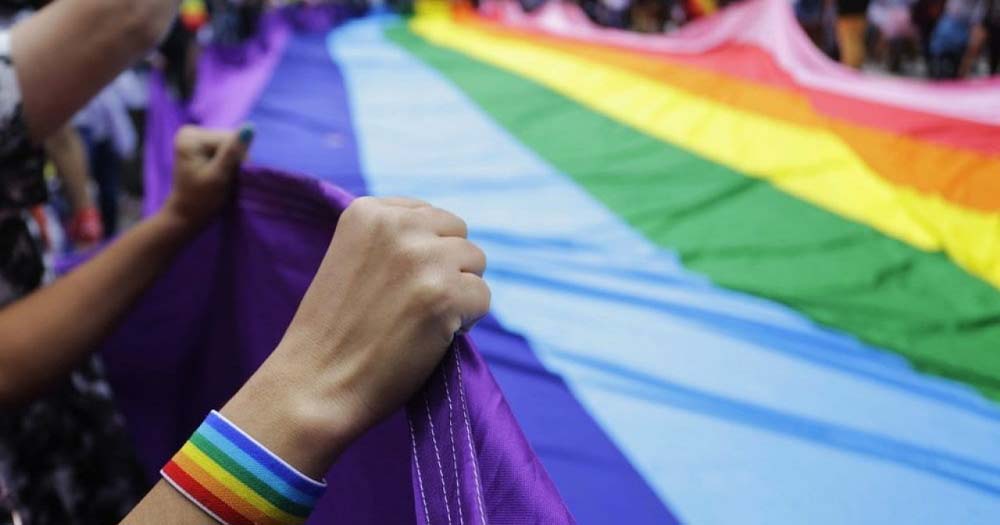May 23rd marks 51 years since the word ‘Homophobic’ was introduced. Although homophobic rhetoric has existed since the Middle Ages, it may surprise you to learn that the word itself didn’t exist until the 1960’s.
It was coined by an American psychologist, George Weinberg, who, in the autumn of 1965, was preparing a speech for the East Coast Homophile Organisations. The idea hit him to create a phrase to describe the fear and negativity he saw in heterosexual men in the presence of homosexuals. He described it as a phobia; “…a fear of homosexuals which seemed to be associated with a fear of contagion…”
However, it was in 1969 when Screw Magazine (A pornographic tabloid, marketed to heterosexuals) published the first instances of the word homophobic in the article “He-Man Horse Shit,” where it was used to describe heterosexuals’ fear of been considered homosexual.
Weinberg later defined the word as, “The dread of being in close quarters with homosexuals— and in the case of homosexuals
themselves, self- loathing.” Gregory M Herek, a Psychology Professor at the University of California, goes into detail about Weinberg and the consequence of the term in his paper Beyond “Homophobia”: Thinking About Sexual Prejudice and Stigma in the Twenty-First Century.
The Oxford dictionary defines homophobia as: “A strong prejudice (= unreasonable dislike) against gay people.” So the word itself has evolved to encapsulate all levels of LGBT+ prejudice and in many ways, has become an overused umbrella term, no longer fit for purpose because it attempts to encapsulate the definition of multiple complex behaviours, far beyond its original purpose of being a ‘phobia’.
"I hate the word homophobia. It's not a phobia. You're not scared. You're an asshole."- Morgan Freeman
— Jesse Torres (@jstorres) June 9, 2019
There are also circumstances where branding two types of prejudice under the same word is, in reality, unfair and undermines our fight for equality. Mark Baer, a Californian based family law lawyer, emphasises, “There is a huge difference between hate and fear.” In his Huffpost.com essay, The Term Homophobia Is Improper, he describes how sufferers of arachnophobia (fear of spiders) generally don’t kill or even harm spiders because “They are too frightened of them.”
In an interview with Tech Insider, Herek proposes a new phrase such as ‘sexual stigma’ for negativity from society for “non-heterosexual things” while negative attitudes based on sexual orientation by an individual should be described as ‘sexual prejudice’. Baer and Herek make very valid points because how we use the word describes behaviours from across the abuse spectrum, from nasty comments to discriminative acts right up to intimidation, physical assault, and murder.
Then there are (what I like to call) ‘contrariwise abuses’; a contrasting spectrum of behaviours not threatening or even negative, in fact, they’re born out of good intention but delivered in a manner that they too make us feel marginalised or just treated differently than our heterosexual counterparts. Although some of you may not regard these as been homophobic, one could argue that they align closer to the original definition of the phobia, at least in theory.
When someone makes an overcompensated effort to be just way too friendly, when you know they’re uncomfortable around you… not out of hate or fear but just uncomfortable with this whole new world of people not conforming to traditional ideals… Could this be regarded as a form of phobia? If so, the phobia stems from the association with homosexuals, therefore, is this homophobic? Perhaps, but to brand under the same word as someone who is being deliberately hateful and outright prejudice seems very unfair.
It’s very clear that the word ‘homophobic’ is incredibly stretched and no one word should be responsible for encapsulating so much… but more importantly, exhausting the word only undermines the very behaviours it defines, making small issues seem more serious than they are and undermining the bigger issues.
Society will continue to experience teething problems while evolving into a new diverse culture so it only makes sense that there will come a time when we need to re-imagine our terminology. After all, like society, language is constantly evolving. It may be only 51 years old, but perhaps it’s time we rethink how we phrase social issues around what we currently gather under the umbrella term of homophobic.
© 2020 GCN (Gay Community News). All rights reserved.
Support GCN
GCN is a free, vital resource for Ireland’s LGBTQ+ community since 1988.
GCN is a trading name of National LGBT Federation CLG, a registered charity - Charity Number: 20034580.
GCN relies on the generous support of the community and allies to sustain the crucial work that we do. Producing GCN is costly, and, in an industry which has been hugely impacted by rising costs, we need your support to help sustain and grow this vital resource.
Supporting GCN for as little as €1.99 per month will help us continue our work as Ireland’s free, independent LGBTQ+ media.
